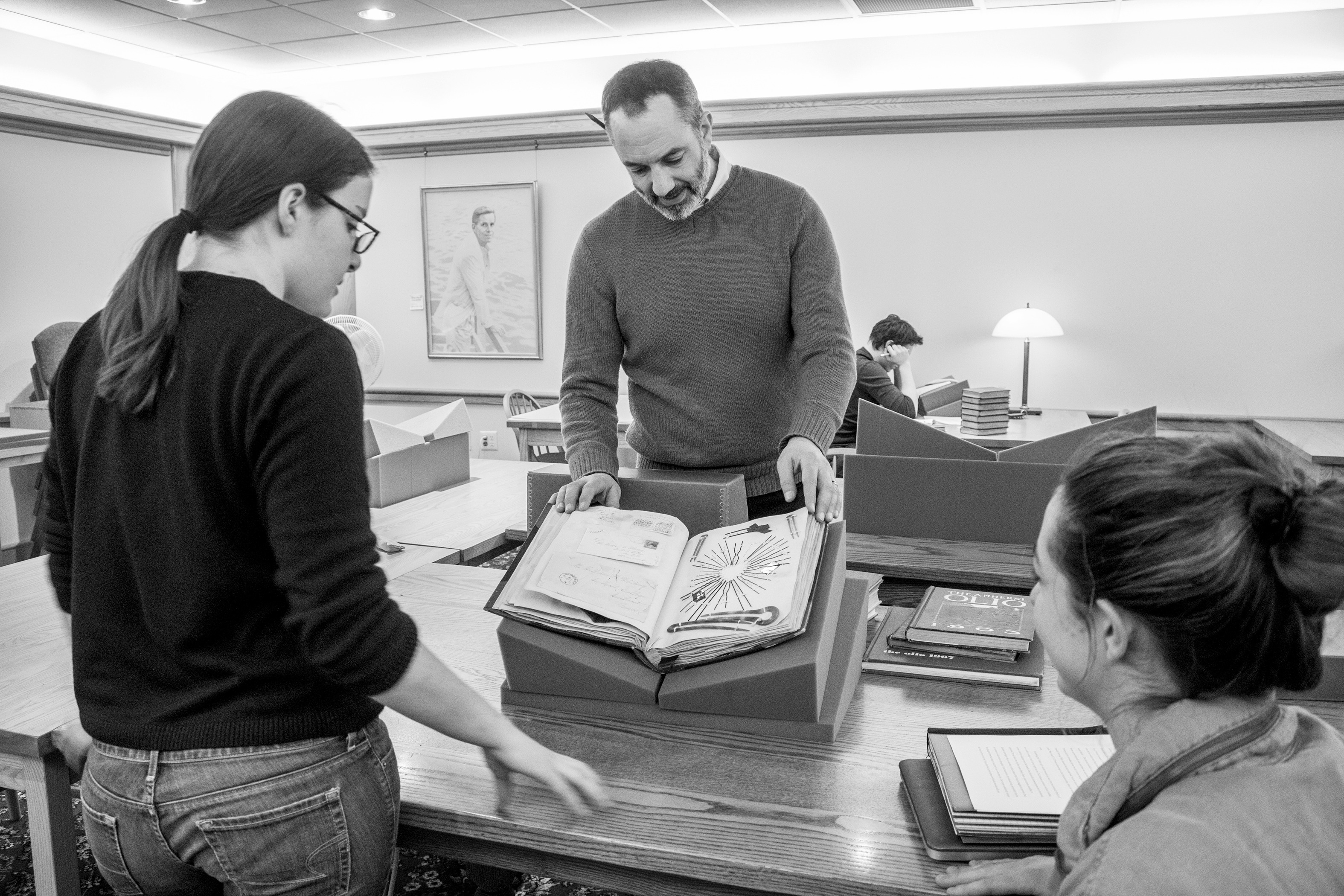

Amherst College has been chosen to host an exhibition of Shakespeare’s First Folio in April 2016. The First Folio is a document that contains some of the earliest transcriptions of many of Shakespeare’s best known plays, including “Julius Caesar,” “Twelfth Night” and “Macbeth.” The original Folios were written down by actors who had worked alongside Shakespeare. The First Folio is still widely used today on stage, as many consider it to be the closest to Shakespeare’s original stage instructions.
Of the original 750 prints of the Folio, about a third are currently held at the Folger Shakespeare Library. Selected copies will be exhibited in each of the 50 states, Puerto Rico and Washington, D.C, over the course of 2016. The exhibitions are a joint effort involving the library, the American Library Association and the Cincinnati Museum Center, and intend to celebrate the 400th anniversary of Shakespeare’s death. Peter Nelson, an archivist at the College, described the project as “ambitious,” citing the absence of precedent for such an exhibition on a national scale.
The college was chosen as the exhibition site for Massachusetts after an application process.
“Our selection is the product of extraordinary collaboration between the English Department and Robert Frost Library, the Mead Art Museum, the Center for Community Engagement, the Office of Public Affairs and other campus programs and centers,” said Professor of English Anston Bosman. “We all sat together at planning meetings and wrote different parts of the application documents together. It was a true partnership.”
Campus-wide plans for the exhibition will be announced in the coming months.
“The details of the programming are very sketchy right now,” Nelson said, “but we have expressed an interest in hosting a symposium on Shakespeare, book culture and the publication history of Renaissance books. We’ll probably bring a … scholarly speaker to talk about the First Folio and Shakespeare in general. The Mead will host an event that will attract families, getting kids interested.”
The college’s historic partnership with the Folger Shakespeare Library was another deciding factor in the selection. The library was founded by Henry Clay Folger, a member of Amherst’s class of 1874. Folger’s interest in Shakespeare was sparked during his time at the college, when he attended a lecture by Ralph Waldo Emerson. Following the lecture, Emerson encouraged him to further pursue Shakespeare’s works, and Folger developed a lifelong passion for Shakespeare. Following his rise to wealth and national prominence, Folger began collecting Shakespeare’s works.
“The Folio gives material form to an intellectual bond,” Bosman said. “This exhibition reaffirms our relationship with our sibling institution, the Folger Shakespeare Library.”
One stated goal for the exhibition at Amherst is to involve the Five Colleges as well as local and regional residents.
“We will have tie-ins with other local libraries, like the Jones Library in Amherst and the Renaissance Center at UMass, so it’s going to be a wide partnership with other museums and libraries,” Nelson said. “This is an opportunity to allow people from small towns to come by, develop programming that will invite local communities — not just the Amherst College community — to learn about Shakespeare, to see the book up close, and to learn the context of Shakespeare and his work.”
Nelson said that the Pioneer Valley is a good location for the exhibition because it allows Shakespeare’s work to be exposed to a regional community that has never interacted with these works in a tactile fashion.
Bosman also plans to integrate the exhibition and related programming into his course on Shakespeare, which is held each spring.
“I want to involve as many visiting scholars from the Folger and other colleges and libraries in the Shakespeare course as possible,” he said. Other courses at Amherst, across various disciplines in the humanities, are also planned to take advantage of the First Folio’s visit.
“This is not going to be closed event for specialists, but an outreach opportunity both locally and regionally,” Bosman said. “One of my plans is to get faculty and staff who don’t normally work on Shakespeare but feel inspired by him to join the conversation in whatever form they practice.”
“I hope the exhibition will be a lightning rod for debate on campus,” Bosman said. “Shakespeare has inspired many of the world’s greatest artists and thinkers — from John Keats to Duke Ellington, from Maya Angelou to Mumford & Sons — and many Amherst students and faculty are Shakespeare fans.”